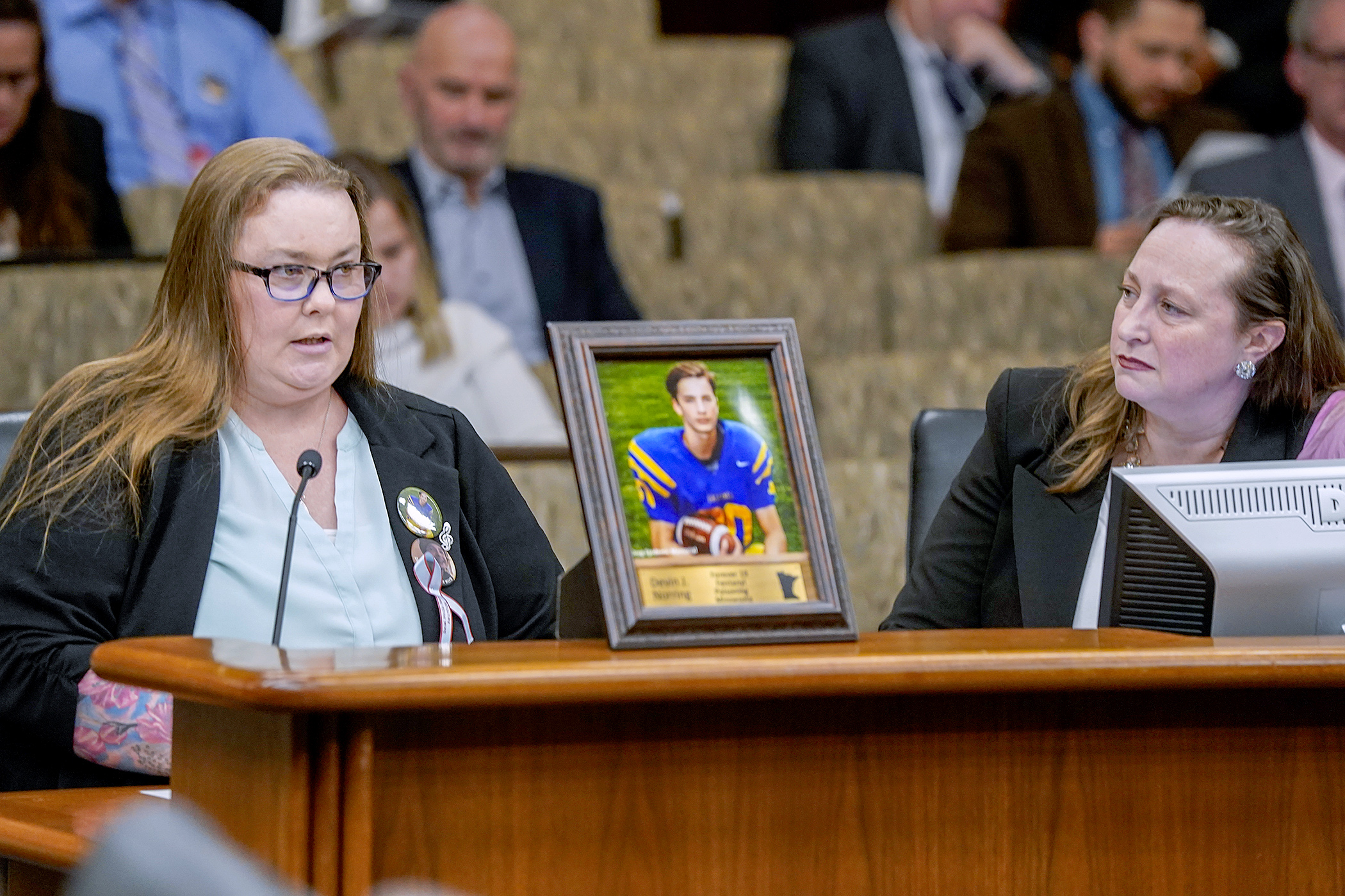Online marketing prioritizes ‘profits over our kids,' says House lawmaker — she aims to change that

With a framed photograph set in front of her, Bridgette Norring spoke Wednesday about her son Devin, and how he died in 2020 from a fentanyl overdose.
“Devin is forever 19,” she said.
He accidentally overdosed on fentanyl he bought on Snapchat, mistakenly thinking it was a Percocet pill to relieve his migraine pain.
“Right now, social media companies are allowed to have a business model where our children, their most vulnerable users, are their most lucrative product,” she said.
After his death, Norring learned her son and a friend had gone on Snapchat and found a drug dealer known for selling to local teens via the platform.
“Every other product our children touch, from the car seat we bring them home in to the fireproof pajamas we dress them in at night, are required to meet specific safety requirements,” Norring said. “Tech should not be an exception.”
Rep. Kristin Bahner (DFL-Maple Grove) wants to bring more regulation and accountability to social media platforms and websites accessed by children.
To that end, she sponsors HF2257, which would limit the amount of data that online businesses collect on children, limit the allowable uses of that data, and prohibit the secret monitoring of children.
“Let’s be blunt,” Bahner said. “Many online products are designed to prioritize profit over our kids. It’s wrong, it’s unacceptable, and frankly, failing to act is failing our kids.”
The House Commerce Finance and Policy Committee approved the bill, as amended, via split-voice vote and sent it to the House Judiciary Finance and Civil Law Committee.
Dubbed the “Minnesota Age-Appropriate Design Code Act,” the proposal is modeled after a law enacted by California in 2022, but blocked from implementation by a federal judge in 2023, who ruled that it violated the First Amendment rights of online businesses.
NetChoice, the technology trade group that brought the California lawsuit, also objects to the proposed Minnesota legislation on First Amendment grounds.
“An unconstitutional law protects no one,” said Amy Bos, NetChoice director of state and federal affairs.
First Amendment concerns were the focus of some Republican objections. Rep. Harry Niska (R-Ramsey) said he’s read the federal judge’s ruling and agrees that the law unconstitutionally stifles free speech.
Bahner said the bill would not be unconstitutional because it purposely avoids regulating online content. Rather, it would protect children’s privacy by strictly limiting online data collection and sharing by technology companies.
“This bill creates a framework to protect kids through the highest privacy settings by default,” she said. “It regulates how businesses manage sensitive data often used to target children online.”
Related Articles
Search Session Daily
Advanced Search OptionsPriority Dailies
Speaker Emerita Melissa Hortman, husband killed in attack
By HPIS Staff House Speaker Emerita Melissa Hortman (DFL-Brooklyn Park) and her husband, Mark, were fatally shot in their home early Saturday morning.
Gov. Tim Walz announced the news dur...
House Speaker Emerita Melissa Hortman (DFL-Brooklyn Park) and her husband, Mark, were fatally shot in their home early Saturday morning.
Gov. Tim Walz announced the news dur...
Lawmakers deliver budget bills to governor's desk in one-day special session
By Mike Cook About that talk of needing all 21 hours left in a legislative day to complete a special session?
House members were more than up to the challenge Monday. Beginning at 10 a.m...
About that talk of needing all 21 hours left in a legislative day to complete a special session?
House members were more than up to the challenge Monday. Beginning at 10 a.m...